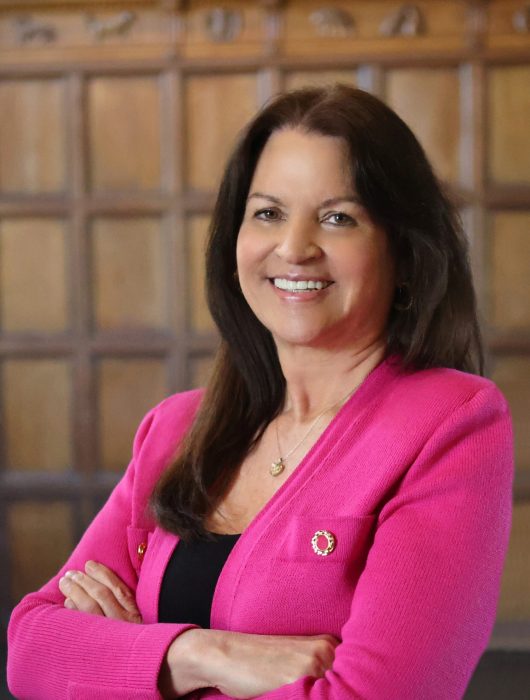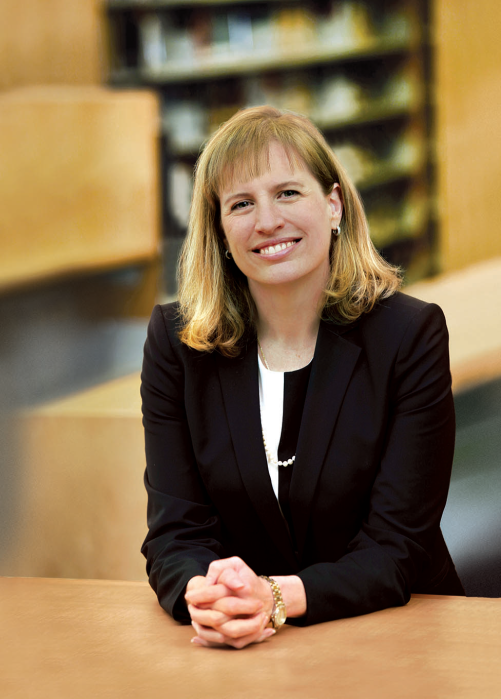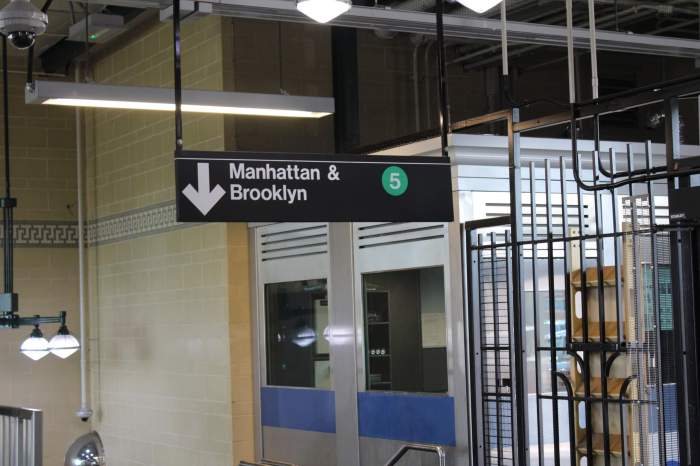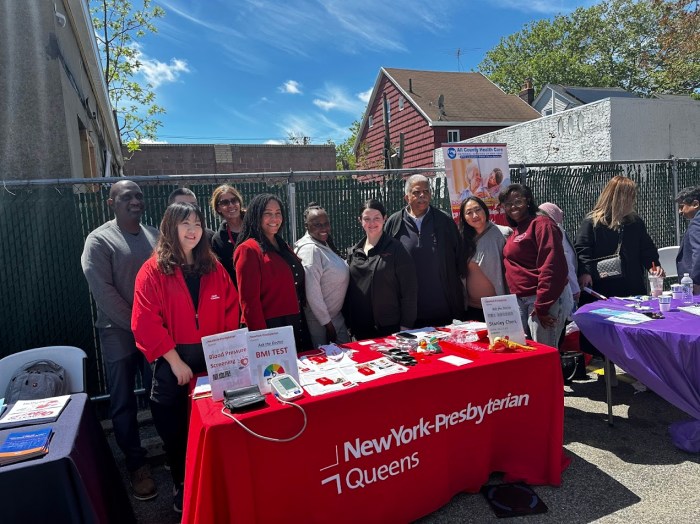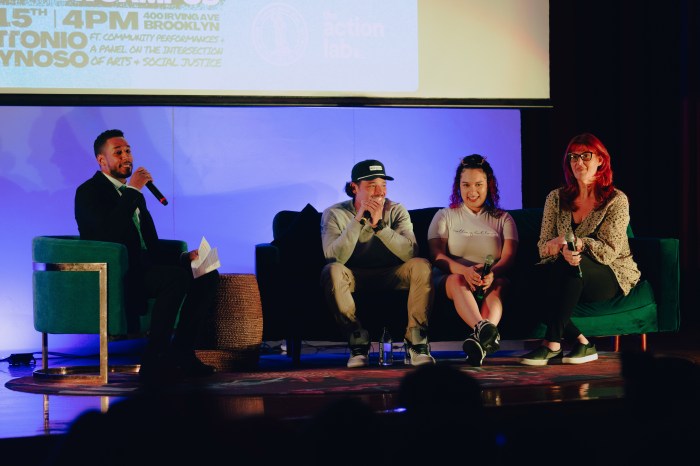Dr. Kimberly R. Cline was named the 10th president of Long Island University in July 2013, assuming the leadership of one of the most comprehensive private universities in the country. She has led the near century old institution through a transformational process to provide students with an exceptional education that emphasizes experiential learning and excellence in teaching and research. Dr. Cline’s tenure has cultivated dynamic new schools, centers, and high quality academic programs.
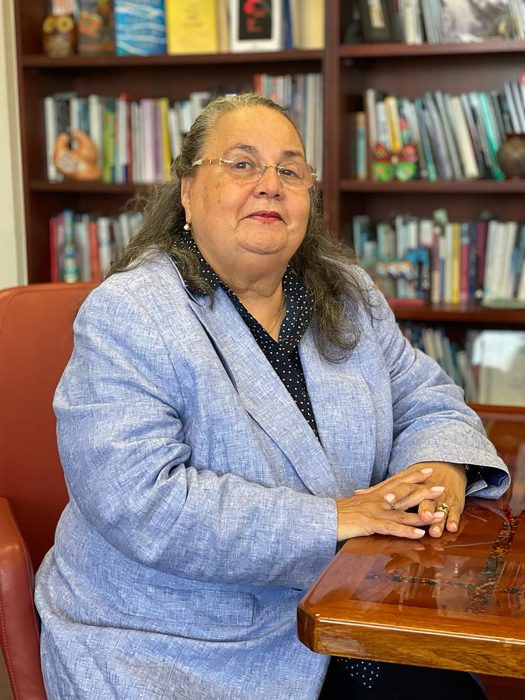
Daisy Cocco De Filippis
President, Hostos Community College, CUNY

A pioneering leader for many women and immigrants, Dr. Cocco De Filippis returned to Hostos in August 2020 after serving as president of Naugatuck Valley Community College. She holds a Ph.D. in Latin American literature, an M. Phil and M.A. in Spanish literature, and a B.A. summa cum laude in Spanish and English literature, all from CUNY. She is a published author, literary critic, and a pioneer in Dominican women’s studies in the U.S.
What inspired you to pursue a career in education?
I was inspired by my first teacher, my grandmother, who taught me to love books and believe in myself. I received the same lesson from my teachers and professors at CUNY who saw in me a book lover and a caring person. I aspire to do the same for my students.
What aspects of education do you believe need more support from policymakers?
As the population grows in diversity the future of communities is secured by education. Budgets of the past decade for community colleges nationwide have declined. It’s time for justice.
What do you think the future of New York’s education system looks like?
The future is bright because of the strength access to education brings to communities and because the diversity of the student populations at public higher education institutions is the source of significant innovation and growth for all.
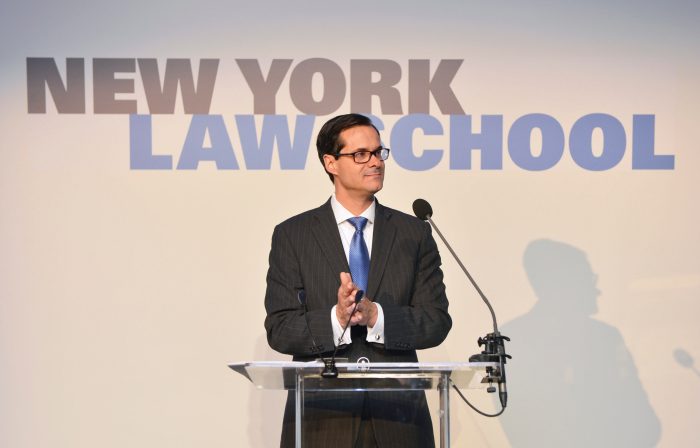
Anthony Crowell
Dean and President, New York Law School

Anthony Crowell is in his 12th year leading New York Law School. Previously, he served as counselor to Mayor Mike Bloomberg in City Hall. Under Crowell’s leadership, NYLS is a powerful engine of civic leadership and social mobility in the City. A new curriculum, diversity programs, academic centers, and institutes give students opportunities to enter the fastest-growing legal job sectors, including business and financial services, intellectual property and technology, and government and public interest.
What inspired you to pursue a career in education?
Education is essential to a free and democratic society. Thus, there is no greater power and no greater gift than that of education. Helping students to develop intellectually and professionally, commit to a life in service of others, and pursue justice is extremely rewarding. That’s why I love my role in education and the mission of our law school.
What aspects of education do you believe need more support from policymakers?
An understanding of, and participation in, the democratic process are fundamental to maintaining a city, state, and nation that values freedom, equality, and justice. Accordingly, more support is needed to develop stronger infrastructure for broadscale civics education and promoting community engagement.
What do you think the future of New York’s education system looks like?
New York has able leadership across the educational sector. As New York’s economy evolves and diversifies more each year, understanding how the right investments in higher education can help us to fuel those changes, as much as respond to them, will lead to the right short- and long-term policy and program choices. If we do this, I think the future of education, and of New York, will be bright.
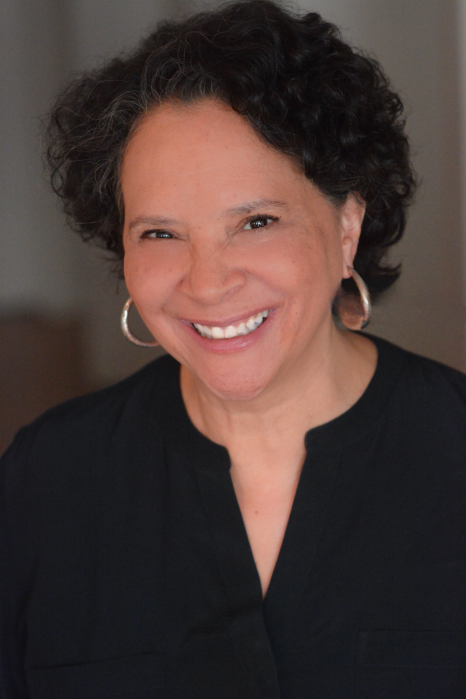
Linda Curtis-Bey
Senior Director of Education and Co-Director of the Master of Arts in Teaching Earth Science Residency Program, American Museum of Natural History

Dr. Linda Curtis-Bey joined the American Museum of Natural History as senior director of education and co-director of the Master of Arts in Teaching Earth Science Residency Program in 2018. Previously, she worked for NYC Public Schools for over 25 years, serving finally as executive director of STEM. Dr. Curtis-Bey holds degrees from Sarah Lawrence College (B.A.), Hunter College (M.S.) and Teachers College, Columbia University (M.A. and Ed.D.). She has 3 children and 4 grandchildren.
What inspired you to pursue a career in education?
Originally, the principal of the school my children attended invited me to join them as a substitute teacher. There, I worked with amazing teachers in a remarkable school and fell in love with teaching. Throughout my career as a teacher, coach, mentor, and administrator, I am constantly learning and growing in what I believe is one of the most fulfilling and rewarding professions.
What aspects of education do you believe need more support from policymakers?
Policymakers should make continued investments in teachers, expand early childhood education, create opportunities for learning outside of school, and explore technology in enriching environments to provide families with the resources they need for their children regardless of their economic background, social background, or location. The pandemic presented an opportunity to more effectively integrate new technology in our daily educational practices; policymakers should nurture new technologies that make education more accessible for all learners and families.
What do you think the future of New York’s education system looks like?
In my role here at the museum, I see the impact that place-based learning has on students of all ages. The future of education in NYC should engage with institutions like ours that ignite curiosity and help make the city one of the world’s greatest classrooms. I also hope to see an increased emphasis on equity and inclusion throughout all levels of our educational structure, and a system that is ready to address social injustice.
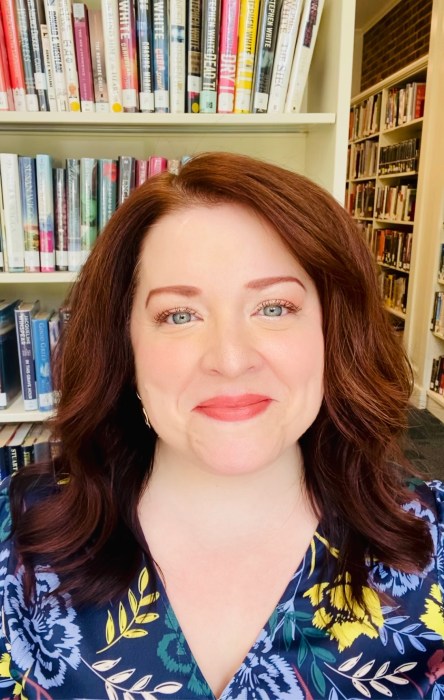
AnnaLee Dragon
Executive Director, New York Library Association

AnnaLee Dragon is the executive director of the New York Library Association, starting in the position in mid-February 2022. Prior to this role, AnnaLee was the director of the Kinderhook Memorial Library in Columbia County for 10 years, where she led the organization through a successful capital campaign and building expansion/renovation. She received her M.S.I.S. from SUNY Albany in 2004 and holds a Bachelor of Arts degree in English literature from Roger Williams University.
What inspired you to pursue a career in education?
I was inspired by my mother, whose primary passion in life was teaching young students, particularly kindergartners. Being raised in a household of readers, our family also spent a fair amount of time in the library, which obviously influenced my career choice. It matters to me that I am able to make a living in a profession that gives back and has a meaningful impact on the world around me.
What aspects of education do you believe need more support from policymakers?
Among NYLA’s many legislative priorities, two major pieces of policy would be game changers for education in NY. The first is the requirement of a certified school library media specialist in every school library, and the second is an increase in library materials aid, or the amount of money librarians can spend per pupil, which has been stagnant at $6.25 per pupil since 2007 as costs have skyrocketed. Invest in our students, libraries are education.
What do you think the future of New York’s education system looks like?
The future depends on the skills we teach our youth as they enter this age of rampant misinformation and restricted access to materials. Certified school library media specialists instill vital media literacy skills to prepare our students to discern fact from fiction and make informed decisions as active participants in our democracy. We need to invest in school libraries and librarians now more than ever with the increasing challenges to access and intellectual freedom.
Berenecea Johnson Eanes
President, York College, CUNY
Dr. Berenecea Johnson Eanes was appointed permanent president of York College, CUNY in summer 2020, following a year as interim president. As president, Dr. Eanes works collaboratively with all stakeholders to achieve the college’s strategic priorities and goals. Prior to her appointment, Dr. Eanes served as vice president for student affairs at California State University Fullerton. Dr. Eanes earned a B.S. in public health from Dillard University, MSW from Boston University and doctorate in social work from Clark Atlanta University.
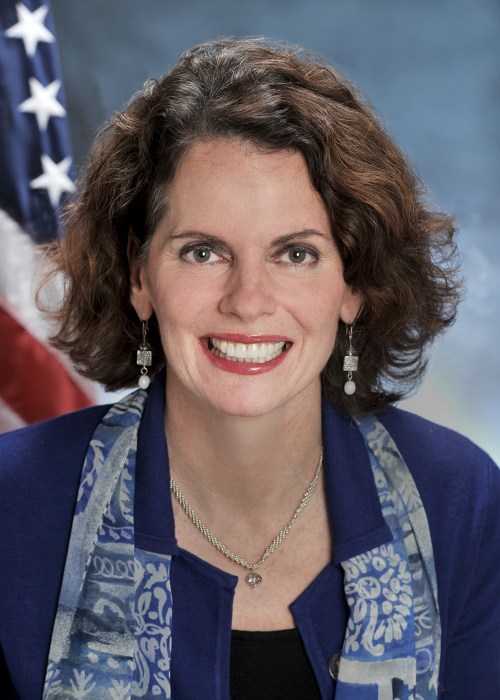
Patricia Fahy
Assembly Member, New York State Assembly | Chair, New York State Assembly Committee on Higher Education

First elected in 2012, NYS Assembly Member Patricia Fahy represents the entire City of Albany, Town of New Scotland, and part of the Town of Guilderland. A leading advocate for job creation, environmental conservation, and quality education, Pat has been the prime sponsor of over 200 bills—more than 70 of which have been signed into law.
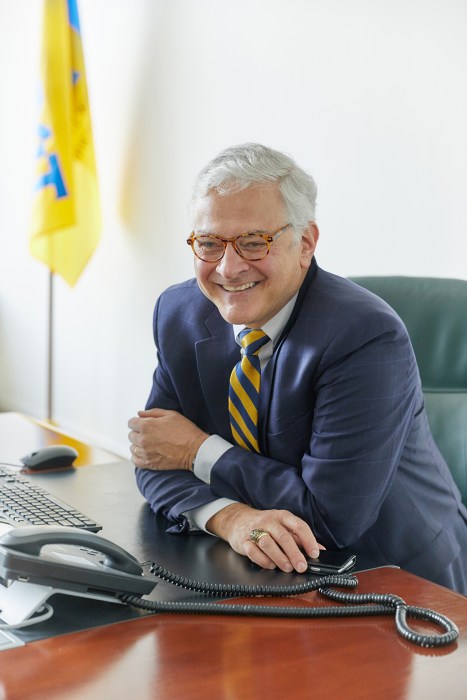
Henry “Hank” C. Foley
President, New York Institute of Technology

Henry “Hank” C. Foley, Ph.D., is president of New York Institute of Technology. He joined the university in June 2017 after serving as interim chancellor of the University of Missouri-Columbia. Dr. Foley earned a bachelor’s degree in chemistry at Providence College, a master’s degree in chemistry from Purdue University, and doctorate in physical and inorganic chemistry from Penn State. He has held faculty appointments at MU, Penn State and the University of Delaware.
What inspired you to pursue a career in education?
My father taught finance and accounting at the collegiate level for forty years. He was an excellent teacher and his students greatly appreciated him and that affected me. I also found that I loved doing undergraduate research and Ph.D.-level research. I tried industrial research but then wished to pursue a career in academia. When I was working for a corporation, I missed the rhythm of the academic calendar.
What aspects of education do you believe need more support from policymakers?
I wish policymakers would view higher education as one system with both public and private institutions seeking to provide the best for students. We are all in this together and better higher education is better for the state and the country. Working together is best for the whole sector. For example, I love the Excelsior grants, but I wish they would follow the students from public or private institutions.
What do you think the future of New York’s education system looks like?
I wish to dispel the myth that private schools cater to students from high income families. It is true for some, but not many. New York Tech has between 40-50% of students eligible for Pell grants every year. These federal grants are aimed at students from low- to very low-income families. Further, 99% of our students receive substantial amounts of financial aid. In addition, many private institutions provide a high ROI for students.
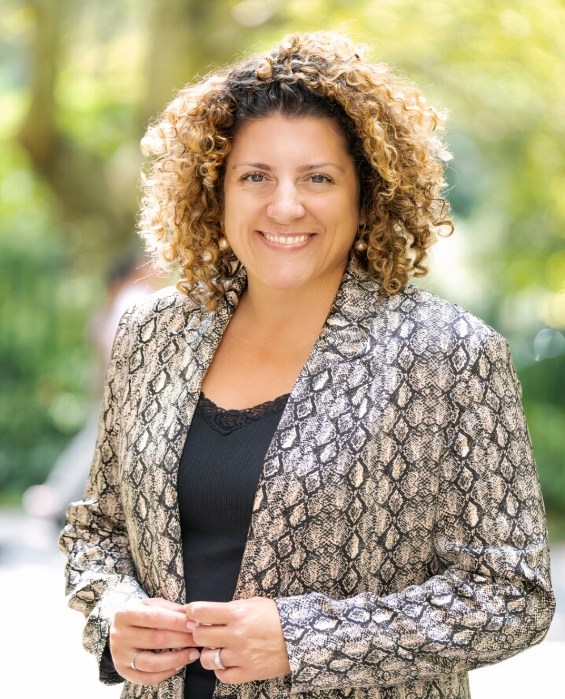
Christina Foti
Chief of Special Education, New York City Public Schools

Christina Foti serves as chief of special education for the NYC public schools. The work of her division reaches students and families within the district, charter, and nonpublic sectors. Her leadership and collaboration with global partners have earned NYC public schools international recognition for best practices in special education. During her tenure, NYC has expanded special education to include specialized programs for students with Autism, intellectual disabilities, physical accessibility needs, as well as students who are bilingual and students who have experienced trauma. Christina holds a bachelor’s degree from Vassar College, a master’s degree in special education from City College, and a postgraduate degree in educational leadership from Hunter College. She is currently a doctoral student at Columbia University’s Teachers College.
What inspired you to pursue a career in education?
My younger brother was born with cerebral palsy and intellectual disabilities. I learned early on that my brother’s path was going to be different than mine. And while we all travel through our own journeys, those journeys should be self-selected and not chosen for us. My journey in education is reflective of a commitment to supporting equitable and joyful pathways for our children and families so that they have full access to their chosen journey and the freedom to pursue their own unique hopes and dreams.
What aspects of education do you believe need more support from policymakers?
Policymakers at all levels have an obligation to uncover hidden narratives and long-standing equity issues that disenfranchise historically marginalized populations. For people with disabilities, these narratives often include an undercurrent of separatism which reinforce ableism. If we develop school and district policies and practices that meet the needs of historically marginalized populations, we will in turn raise the tide for all, creating an education system which empowers and inspires all of its students.
What do you think the future of New York’s education system looks like?
Our aim is to take a “for the community, by the community” approach to special education, with a focus on developing high quality special education programs in every neighborhood in NYC. We envision a future where all families can send their students to their neighborhood school, knowing their child will receive an education that will open the door for their chosen journey. We want to move from a lens of inclusion to one of rightful presence–where our system intrinsically recognizes that everyone belongs.


